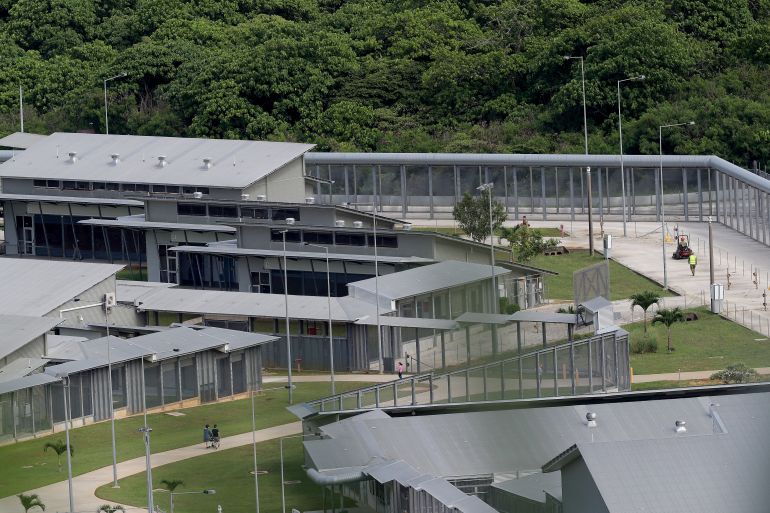Australia urged to cut numbers in immigration detention
Human Rights Commission also urges government to close remote Christmas Island detention centre.

Australia’s Human Rights Commission has urged the government to reduce COVID-19 risks for immigration detainees by reducing the number of people held in the crowded facilities in a report released on Wednesday that also called for the closure of its Christmas Island detention centre, 2,600 kilometres (1,616 miles) northwest of Australia in the Indian Ocean.
The Human Rights Commission said that while the United Kingdom, Canada and the United States all reduced the number of people held in immigration detention – by 39 percent, 66 percent and 69 percent respectively – in the first six months of the pandemic, the numbers in Australia had increased by 12 percent.
Keep reading
list of 4 itemsAustralia under pressure after refugee girl airlifted to hospital
Australia’s Victoria reports Delta COVID variant in new outbreak
Australia retreats on jail threat for India travellers amid fury
“The government should follow expert health advice and release people who present a low security risk into community housing,” said Human Rights Commissioner Edward Santow.
“The Commission considers the re-opening of the North West Point detention facility on Christmas Island is not an appropriate solution to address increasing numbers and overcrowding in other immigration detention facilities. The Island is remote, isolated and lacks sophisticated healthcare facilities, which poses even greater risks during a pandemic.”
The report came amid a public outcry about the treatment of the Murugappan family, who were taken to Christmas Island in 2018 after their asylum claims were rejected. The family, whose two young daughters were born in Australia, is now being moved to “community detention” in Perth after the youngest, three-year-old Tharunicca, was medically evacuated to the city with a dangerous blood infection.
Australia has for years taken a harsh approach to people who have tried to travel to the country by boat, sending them to offshore detention facilities and telling them they will never get to live in Australia itself. The government said it would reopen Christmas Island in 2019 after Parliament passed a law allowing those held offshore to seek emergency medical treatment in Australia.
The report said centres were often cramped and crowded, with bunk beds in bedrooms and shared bathrooms, making the physical distancing that curbs the spread of COVID-19 impossible.
The commission also noted that many people in immigration detention had pre-existing health conditions that also increased their vulnerability to the disease. It added that the Department of Home Affairs had said that as of September 28 last year, 247 people had been assessed as particularly vulnerable to the coronavirus.
“A COVID-19 outbreak in this environment, with such a high proportion of people vulnerable to COVID-19, has the potential to be catastrophic,” Santow said.
The commission also questioned the use of two-week “operational quarantines” for detainees returning from outside meetings such as doctor’s appointments, describing some conditions as “prison-like” and stressing that any measures restricting an individual’s basic rights should be “reasonable, necessary and proportionate”.
Public Interest Advocacy Centre (PIAC), which made an official complaint on behalf of 14 detainees last year in relation to coronavirus risks, said it was “deeply troubling” that the problems remained.
“The pandemic may be easing, but we’ve seen how outbreaks in closed environments like aged care facilities can be catastrophic and drive entire cities into lockdown,” Jane Leibowitz, the PIAC’s acting principal solicitor, said in a statement.
“The Government owes a duty of care to the people it detains. Given the high risk of transmission in closed environments, we call on the Government to expedite the vaccination of people in immigration detention, and urge them to act immediately to improve COVID safety to protect detainees, staff and the broader community.”